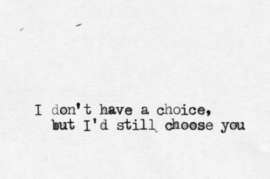 In a song made popular by the folk duo The Civil Wars, “Poison & Wine,” the anguished love of a married couple cries out: “I don’t love you/but I always will.”[1] These are the honest words of two lovers whose commitment to one another has endured a severe test. Surrendering, they confess: “I don’t have a choice/but I’d still choose you.”[2]
In a song made popular by the folk duo The Civil Wars, “Poison & Wine,” the anguished love of a married couple cries out: “I don’t love you/but I always will.”[1] These are the honest words of two lovers whose commitment to one another has endured a severe test. Surrendering, they confess: “I don’t have a choice/but I’d still choose you.”[2]
This song of suffering love between husband and wife is the one that came to mind as I considered Abraham Heschel’s account of the prophet Hosea in The Prophets. “It is as if there were a dramatic tension in God,” says Heschel as he reflects on the intense harmony of divine anger and compassion revealed in the prophet Hosea’s words.[3] Yet, in a way reflected by the words of The Civil Wars, this harmony cannot last. The tension breaks as Hosea “flashes a glimpse into the inner life of God” where we discover that suffering love – and not anger – is the “decisive motive behind God’s strategy in history.”[4]
As scandalous as it seems, God is bound to Israel by an “ineradicable”[5] love: “I will not execute my fierce anger… for I am God and no mortal.”[6] Hosea does not merely feel God’s momentary, incidental reaction to Israel’s disloyalty; he is drawn into “the fundamental emotion… [existing within] the constitutive relationship between God and Israel.”[7] Hosea proclaims the very being of God as supreme love “expressed first in the bitterness of disillusionment” which “finds its climax in the hope of reconciliation.”[8]
However, Hosea does not merely proclaim this message – he lives it. The anguish in God’s voice belongs to Hosea as well. He has been educated in daath elohim – “the knowledge of God” – which plunges Hosea into the depths of “suffering together” with God where “both persons share the same feeling.”[9] Through Hosea, God calls Israel along with all those who would call upon God to “know” the emotions, concerns, and inwardness of God in a relationship of “constant solidarity.”[10] This is love like no other; this is hope beyond all hope.
Like Israel, I “forget” God and turn to idols. God looks and sings, “You think your dreams are the same as mine.”[11] Unlike Hosea, I have yet to feel the intensity of God’s burning anger towards the idolatry of my heart. Is it possible to “know” the God of profound love apart from “knowing” this rage? While I am overwhelmed by God’s faithful acts of love and compassion towards me, Hosea calls me into the deep, wild, raging currents of triune Love by the way of suffering, of self-emptying, the way of Christ in the power of the Spirit.
[1] John Paul White, Joy Williams, and Chris Lindsey, Poison & Wine, The Civil Wars, 2011 by Sensibility Recordings LLC, Compact Disc.
[2] Ibid.
[3] Abraham J. Heschel, The Prophets, 57.
[4] Heschel, 58.
[5] Heschel, 52.
[6] Hosea 11:9, NRSV.
[7] Heschel., 59.
[8] Heschel, 63.
[9] Heschel, 73.
[10] Heschel, 74.
[11] Poison & Wine, The Civil Wars.